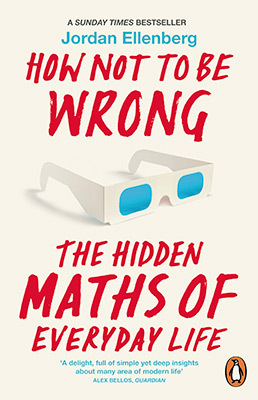
Weapons of Math Destruction: How Big Data Increases Inequality and Threatens Democracy
Book Description
Behind the curtain of algorithm-driven decisions lies a dark reality: data isn't just numbers; it's a weapon. Cathy O'Neil unveils the hidden forces of big data that perpetuate inequality and undermine democracy, revealing how seemingly innocuous models can destroy lives and amplify social injustice. From education to employment, these mathematical constructs often operate without accountability, spreading their lethal impact like wildfire. As the stakes rise and the consequences intensify, one question looms: who will hold these powerful algorithms accountable in a world built on flawed calculations?
Quick Book Summary
"Weapons of Math Destruction" by Cathy O'Neil explores how big data algorithms and mathematical models increasingly dictate choices in education, employment, criminal justice, and more. O'Neil warns that many of these powerful systems, designed to optimize efficiency and fairness, often perpetuate and amplify existing social inequalities. Because these algorithms are opaque and largely unregulated, they escape scrutiny—even as their decisions affect millions of lives. O'Neil calls these dangerous models "Weapons of Math Destruction" (WMDs): they operate at scale, are opaque in design, and cause enormous damage when they make flawed or biased decisions. Highlighting real-world examples, she urges for greater transparency, accountability, and public oversight to ensure that big data serves the common good rather than entrenching injustice.
Summary of Key Ideas
Table of Contents
The Dangers of Opaque Algorithms
Cathy O'Neil exposes the hidden dangers lurking in the algorithms that increasingly govern daily life. These statistical models, designed to enhance efficiency or fairness across industries, are often used in high-stakes settings such as policing, hiring, credit scoring, and education. Despite their complexity and aura of objectivity, many are fundamentally flawed—built on biased data or incomplete assumptions, yet they guide crucial decisions about individuals' futures without meaningful human intervention.
Feedback Loops That Perpetuate Inequality
A key problem is the opacity of these systems. The average person affected by a statistical model's decision—such as being denied a loan or overlooked for a job—has little to no visibility into how the outcome was determined. This black-box quality makes it nearly impossible to contest or correct errors. When models are protected as proprietary or too technical for scrutiny, they can perpetuate biases under the guise of mathematical neutrality, deepening social divides.
The Scale and Impact of Mathematical Models
O'Neil emphasizes the concept of self-reinforcing or "feedback loop" effects. For example, predictive policing models direct more police attention to certain neighborhoods, which results in more arrests there, making those areas seem high-risk in the algorithm’s eyes, leading to even heavier policing. Similarly, algorithms determining educational or employment opportunities can lock individuals—and entire communities—into cycles of disadvantage, compounding society’s existing inequalities.
Lack of Accountability in Big Data
The scale and reach of these mathematical models turn their flaws into real, widespread harm. What O’Neil calls “Weapons of Math Destruction” are not isolated systems—they impact millions, shaping societal structures in ways that traditional human decision-making never could. Their speed and scale make their mistakes and biases exponentially more damaging, as they institutionalize discrimination or unfairness in seemingly objective code.
The Need for Transparency and Regulation
Throughout the book, O'Neil argues that society must demand transparency, oversight, and the ability to challenge the decisions of such models. She calls for regulatory frameworks, public audits, and ethical standards similar to those applied in finance or medicine. O’Neil’s call to action is clear: without checks and balances, mathematical models will continue to threaten democracy, individual autonomy, and social justice, unless we insist that this powerful technology serves the public good.
Download This Summary
Get a free PDF of this summary instantly — no email required.





